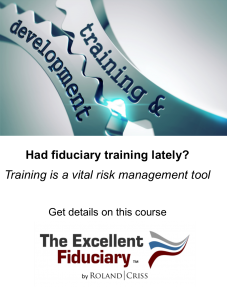VIDEO
Certified Public Accountants conducting annual audits of 401(k) and 403(b) retirement plans frequently identify several significant and common deficiencies. These issues can put plan participants and their assets at risk, potentially leading to penalties and compliance problems. Learn what to watch for in retirement plan management.
Avoiding Common 401(k) and 403(b) Plan Audit Deficiencies
Maintaining compliance in 401(k) and 403(b) retirement plans requires vigilance and proactive management.
By understanding common audit deficiencies and implementing robust preventive measures, plan administrators can significantly enhance plan effectiveness and reduce compliance risks. Regular internal audits, comprehensive staff training, and staying informed about regulatory changes are key components of a successful compliance strategy.
These practices not only help avoid audit deficiencies but also contribute to the overall health and effectiveness of the retirement plan, ultimately benefiting plan participants and sponsors alike.
Roland|Criss brings expertise in best practices, helping to optimize plan design, investment options, and administrative processes. This collaboration can lead to improved overall plan performance through more informed decision-making and strategic guidance.




